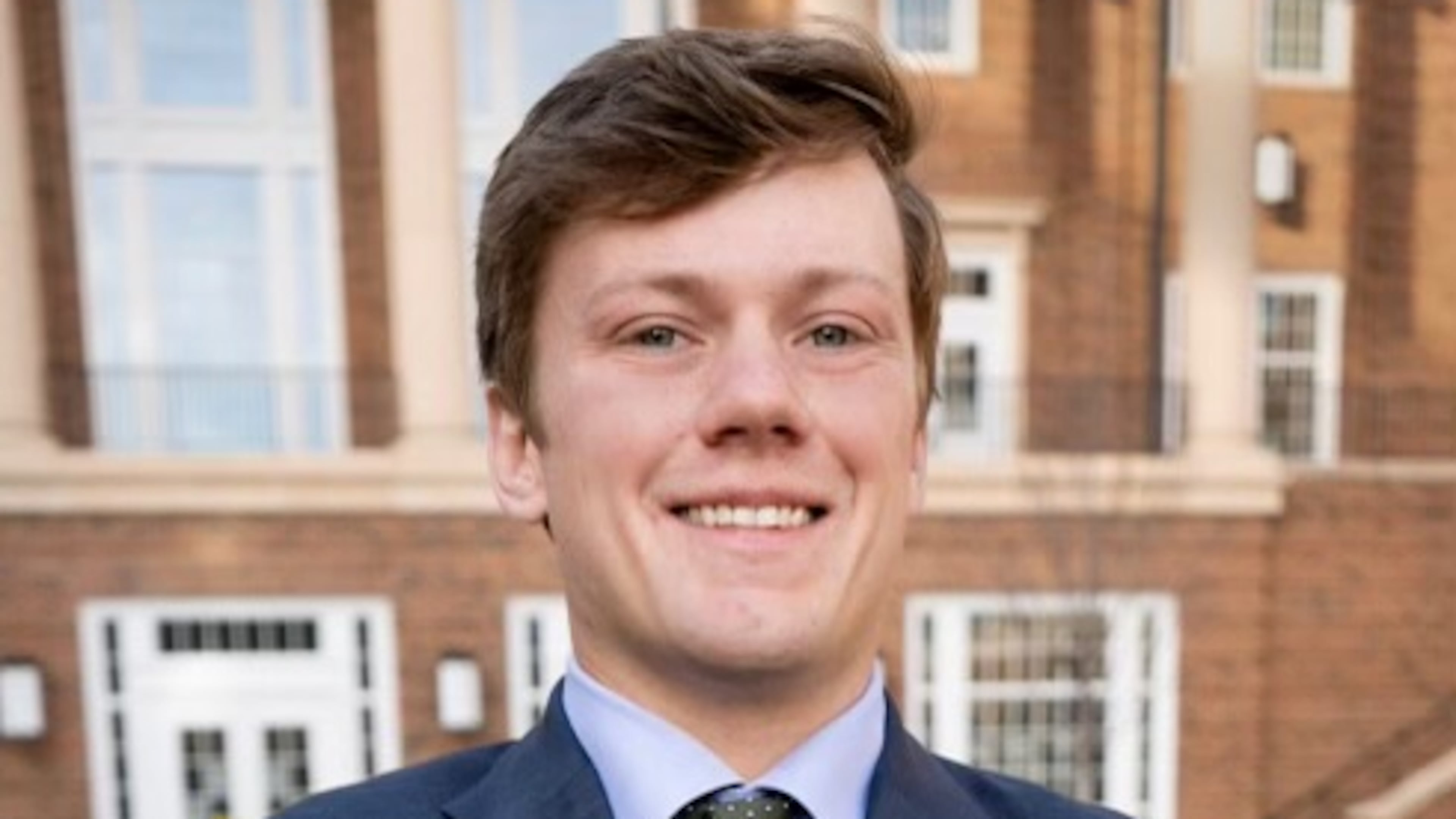Atlanta man honored with Carnegie Medal for Heroism

Tucker Shields wasn’t thinking about being a hero when he jumped on an armed assailant last summer, knocking the loaded revolver out of his hand and pinning him to the ground until police arrived.
He wasn’t thinking at all. His act of heroism was instant and spontaneous. As a result, Shields was awarded a Carnegie Medal of Heroism, a distinction that will follow him for the rest of his life.
The 23-year-old Atlantan, who was working as a summer law intern in Washington, D.C., at the time, says he was “very lucky” Aug. 31, 2021, turned out as it did.
Shields had just finished up a night out with friends and was leaving the Mission Navy Yard, a bar and restaurant across from the Nationals Park baseball stadium, when he found himself in an unexpected dangerous situation.
While he walked down the street with a friend, Shields called for an Uber and looked down at his phone. When he looked up, he noticed a guy and girl couple about 10 feet away with a man standing awkwardly in front of them.
“I didn’t think too much about it,” Shields said, “and then I glanced back up and saw (the man) had pulled out a revolver and aimed it at the guy’s midsection.”
The gun was pointed at Larry Alkinburg, then 24, who was walking with a female partner. The man had been following the couple for about 50 feet, harassing them and demanding they kiss.
“I didn’t even see what the man looked like,” Shields said. “I just saw the revolver and jumped at him.”
The man shot at Shields but missed. Shields pulled him to the ground, put his hands over his head, took the gun, then put the man’s hands behind his back. Alkinburg helped as they both held the man down until police arrived.
Shields said law enforcement came quickly after the gun was fired. The assailant was arrested and later plead guilty to several crimes.
That night, Shields spent an hour-and-a-half talking with police, then finally got back to his apartment at about 4 a.m. with chipped front teeth, a bloody face from where his lips had busted open, and a shirt covered in blood. His roommate was still up, watching a movie.
“I’m like, ‘Dude, you’re never going to believe what just happened,’” said Shields.
Later that day, he went over the narrative with his parents, Ralph and Kim Shields of Buckhead. His father said their first response was, “Are you OK?” His mother was upset, and when his grandfather, Carl Volk, heard what happened, he said: “Holy crap, Tucker. Are you trying to get yourself killed?”
“It was really crazy, looking back on it,” Shields said. “I remember very clearly what the revolver looked like. I saw it for a second and just went into a mode and tackled him. I just knew I had to jump in.
“Luckily, I wrestled in high school, which was helpful because otherwise, I don’t know if I would have been as quick to get his hands over his head and behind his back.”
Shields, a recent business graduate from the University of Georgia, was captain of his wrestling team at North Atlanta High School. He also played football and lacrosse, graduating in 2018. He plans to go to law school and is working this summer on Gov. Brian Kemp’s re-election campaign.
Shields is still unsure who nominated him for the Carnegie Medal and didn’t think he would be selected. He said it was a surprise and an honor to learn in June that he was named a recipient. “I could not believe it,” he said.
Alkinburg said Shields is a life saver, and more than deserving of the award.
“What he did that night was a display of true bravery,” Alkinburg said. “He is certainly a hero and I am forever grateful he took action in the face of danger.”
The Carnegie award comes with notoriety and potential financial perks, such as a one-time grant or scholarship aid for the hero or their survivors. Shields said he would look into that as he pursues law school.
Ralph Shields said his son had never been in a fight but always wondered what he would do if confronted with a life or death situation like the one he experienced.
“We’re so proud of him,” Ralph Shields said, “We’re just so grateful he’s alive.”
WHAT IS A CARNEGIE MEDAL
The Carnegie Hero Fund Commission was started in 1904 by wealthy steel industrialist Andrew Carnegie to recognize civilian heroes.
A Carnegie Medal is given to individuals in the U.S. and Canada who risk death or serious physical injury to an extraordinary degree saving or attempting to save the lives of others.
Since its beginning, 10,000 people have been awarded a Carnegie Medal out of 100,000 nominees. About 20% of the medals are awarded posthumously. Awardees are announced four times a year.
